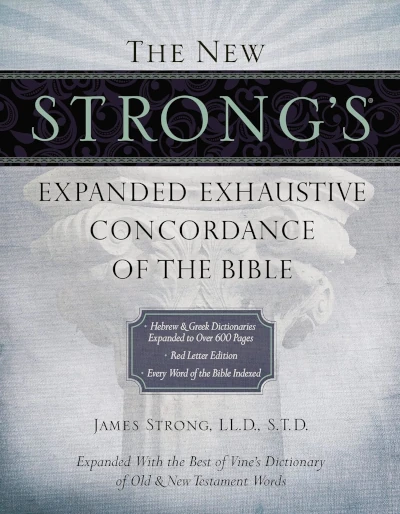In the song of James chapter 2, we hear a bold, clear challenge. It’s not enough to simply believe, we’re called to live what we say we believe. James doesn’t shy away from the tension. Instead, he dives straight into it. He confronts hypocrisy. He rebukes favoritism. And he reminds us that real faith is visible, not theoretical.
James continues the practical teaching of this letter by confronting problems that often appear in Christian life. James addresses the issue of favoritism, the importance of living out God’s royal law of love, and the necessity of demonstrating faith through action. The chapter shows that genuine faith is not only something we believe but also something we practice. James uses clear examples, plain reasoning, and references to both the law and the lives of biblical figures. His purpose is to remind believers that true Christianity cannot be separated from a life that reflects God’s mercy and righteousness.
Discover simple, powerful Bible study habits. Get How to Study the Bible for Yourself today!
As we read, we’re forced to examine ourselves. Do our actions match our confessions? Are we showing mercy or making shallow judgments? We can’t afford to ignore the answers. Genuine faith leaves footprints. It cares for the overlooked. It defends the weak. It proves itself in motion.
But James doesn’t leave us guessing. Throughout this chapter, he lays out practical, heart-searching examples. He reminds us that even demons believe, but that doesn’t make them faithful. Belief alone isn’t the mark of maturity. Action is.
James chapter 2 is more than instruction, it’s an invitation. It’s the anthem of a living, breathing faith. The song of James chapter two still echoes today, calling us to live what we believe and love without partiality.
The Sin of Favoritism (James 2:1–7)
James begins chapter 2 by addressing a problem common in many communities. He warns against showing partiality, especially in matters of wealth and appearance. He says, “My brothers, show no partiality as you hold the faith in our Lord Jesus Christ, the Lord of glory” (verse 1). The example James gives is clear. If a wealthy man enters the assembly with fine clothes and a poor man arrives in shabby garments, the wealthy man should not receive better treatment. Giving honor to one while dishonoring another is a failure to live according to the gospel.
James makes this point forcefully. To favor the rich and despise the poor is inconsistent with faith in Christ. The world values wealth, but God values faith and humility. James reminds believers that God has chosen the poor of the world to be rich in faith and heirs of the kingdom. In contrast, the rich often oppress and drag believers into court. They even blaspheme the honorable name of Christ. This rebuke highlights the danger of adopting worldly measures of value within the church.
The message of this section of James chapter 2 is clear. Partiality is not a small weakness but a serious sin. It denies the truth that all believers stand equal before the Lord. To discriminate based on wealth or status directly contradicts the gospel of grace. James reminds us that the church must reflect God’s character, not the values of society.
The Royal Law and Mercy (James 2:8–13)
James continues by pointing believers back to the “royal law,” which comes from Leviticus 19:18: “You shall love your neighbor as yourself.” He explains that keeping this command fulfills the law of God. However, favoritism violates this royal law and therefore is sin. To break one part of the law is to become guilty of the whole law, for the law is unified. James illustrates this with examples of adultery and murder. If one obeys one command but breaks another, he is still a transgressor.
This teaching is essential in James chapter 2. It shows that partiality is not minor but stands alongside other serious sins. Favoritism may appear respectable, but James identifies it as lawbreaking. He then shifts to a call for mercy. Believers must speak and act as those who will be judged under the “law of liberty.” This is the law revealed in Christ, which brings true freedom through obedience motivated by love.

The New Strong’s Expanded Exhaustive Concordance of the Bible
This expanded edition is computer generated for highest accuracy, and the Hebrew and Greek dictionaries have been augmented with definitions from the classic reference work Vine’s Complete Expository Dictionary of Old and New Testament Words.
Get Yours on AmazonJames adds a sobering reminder: judgment without mercy will come to those who show no mercy. However, mercy triumphs over judgment. God’s people must extend compassion and fairness, reflecting His character. The call is not only to avoid favoritism but to actively practice mercy toward others.
The lesson in this section is that the church cannot pick and choose which commands to follow. To love our neighbor requires setting aside selfish preferences and pride. God’s mercy toward us demands that we live as merciful people, extending grace rather than judgment.
Faith Without Deeds Is Dead (James 2:14–26)
The final section of James chapter 2 contains perhaps the most famous teaching in the letter. James declares that faith without works is dead. He begins with a practical question: “What good is it if someone says he has faith but does not have works? Can that faith save him?” (verse 14). The example James provides is simple. If a believer sees a brother or sister lacking food and clothing but only offers kind words without action, that faith is useless. True faith must be expressed in deeds.
James insists that works are the evidence of genuine faith. He does not teach that works replace faith but that works prove faith is alive. He challenges any claim to faith that lacks obedience. He even points out that demons believe in God, yet their belief brings only fear, not salvation. Faith must be active.
To support his point, James refers to Abraham and Rahab. Abraham showed his faith by offering Isaac, his son, on the altar. Rahab demonstrated faith by hiding the Israelite spies in Jericho. Both examples highlight that true faith is always joined with action. James concludes with a striking statement: “For as the body apart from the spirit is dead, so also faith apart from works is dead” (verse 26).
The message here is that faith is not merely intellectual agreement. Real faith is visible through obedience, sacrifice, and love. James chapter 2 warns us that faith without action is lifeless and cannot save.
Closing Thoughts on James Chapter 2
James chapter 2 calls us to examine whether our lives truly reflect the faith we claim. Partiality toward the rich, neglect of the poor, and faith without action all reveal a heart disconnected from the gospel. The chapter urges us to live by the royal law of love, extending mercy and compassion without favoritism. James also makes it clear that faith and works cannot be separated. Genuine belief is always seen in practice. The message of James chapter 2 is a call to authentic discipleship, where love, mercy, and obedience confirm the reality of our faith in Christ.
We can’t claim faith in Christ and remain unchanged. The call is clear: faith without deeds is dead. But when faith is alive, it overflows in mercy, justice, and compassion. Take time to meditate on these verses. Ask God to reveal areas where your faith needs action. He is faithful to guide us. His Word brings wisdom for every decision and restoration for every broken place.
Explore More Bible Outlines
Looking for more? Explore additional studies in our Bible Outlines category. You can always return to the Bible Study Toolbox home page for more resources. Have questions or feedback? Feel free to contact us anytime.
Frequently Asked Questions (FAQ) About James Chapter Two
What is the main theme of James chapter 2? The central theme is that genuine faith must be shown through action. James warns against favoritism, urges believers to obey the royal law of love, and stresses that faith without works is dead.
Why does James condemn favoritism in the church (James 2:1–7)? James teaches that showing partiality based on wealth or appearance contradicts the gospel. All believers are equal before Christ, and favoritism denies this truth.
What is the “royal law” mentioned in James 2:8? The royal law is “You shall love your neighbor as yourself” (Leviticus 19:18). James calls it royal because it comes from God, the King, and governs relationships among His people.
Does James teach that salvation comes by works in James 2:14–26? No. James does not say works replace faith. Instead, he shows that true faith produces works. Without deeds, faith is lifeless and cannot save.
How do Abraham and Rahab illustrate living faith (James 2:21–25)? Abraham showed faith through obedience by offering Isaac on the altar. Rahab demonstrated faith by protecting the spies. Both proved their belief through action.



